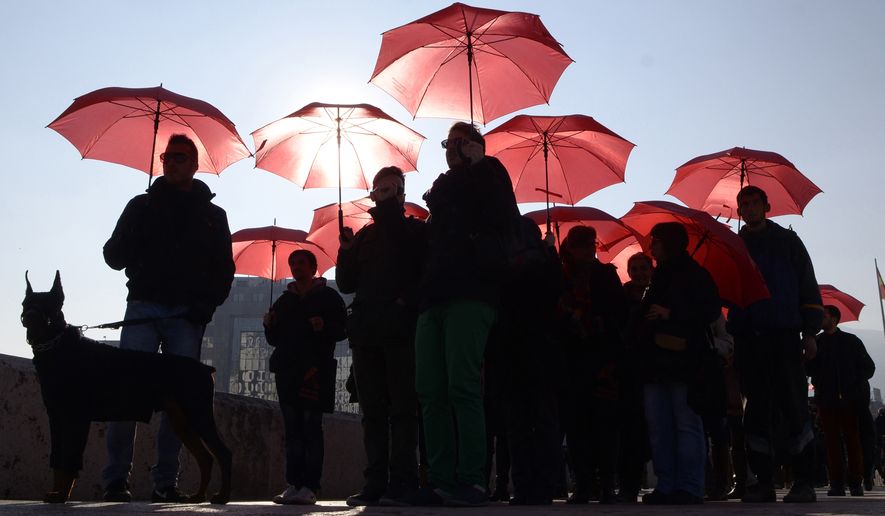Anti-exploitation groups on Thursday urged Amnesty International to abandon its plan to call for the legalization of prostitution, warning that it will only lead to more abuse of people, especially women and children.
The idea that legalizing sex work protects women is “based on a fiction,” Eleanor Gaetan, legislative adviser at the Coalition Against Trafficking in Women, said at a news conference at the National Center on Sexual Exploitation (NCOSE).
It doesn’t protect vulnerable people but rather normalizes a multibillion-dollar sex-trade industry and leads to more prostitution, she said, citing experiences in Europe, Australia and New Zealand.
In August, Amnesty International’s decision-making forum voted to authorize its international board to develop and adopt a policy to protect the rights of workers engaged in “consensual” sexual activities.
“Sex workers are one of the most marginalized groups in the world, who in most instances face constant risk of discrimination, violence and abuse,” Salil Shetty, secretary general of Amnesty International, said when the vote was taken at the meeting in Dublin.
The proposed policy would also call on states to “ensure that sex workers enjoy full and equal legal protection from exploitation, trafficking and violence,” Amnesty International said. It added that the new policy would “help shape” their organization’s future human rights work regarding prostitutes.
Amnesty International said Thursday that they welcome the global debate on the issue.
“Our policy decision is based on the lived experience of sex workers around the world, and is wholly focused on protecting their rights,” the human rights group said in a statement from London.
“Third parties” that exploit or abuse sex workers or children will still be criminalized under the proposed policy, it said, adding that The Lancet, the world’s oldest and best known medical journal, has endorsed Amnesty International’s approach.
The final policy has not been released and the timing of a definitive vote is unknown, said Ms. Gaetan, a scholar who worked for years with the State Department on the human trafficking issues.
NCOSE and other opponents say legalizing or normalizing sex work as a “job” or a “business” would only benefit brothel owners and customers seeking sex.
It will give them “full license” to condone violence, sexual abuse — including rape — and verbal abuse that is commonly perpetuated on vulnerable people, said Lisa Thompson, vice president of education and outreach at the NCOSE.
Sex-worker safety guidelines, for instance, warn against letting a client lock them inside a room, or wearing scarves or necklaces that could be used to choke them, or letting clients bring handcuffs or other restraints that could be used to subdue them for violent purposes, said Ms. Thompson.
A better proposal, NCOSE and other opponents say, would be to withdraw punishments for people trapped in the sex trade, but stiffen penalties for the buying and “pimping” of sex.
“People with any alternative [to income] want to get out,” said Ms. Thompson.
With a social media campaign called #NoAmnestyForPimps, NCOSE and its allies are also urging people to sign a letter and petition that protests the Amnesty International proposal.
• Cheryl Wetzstein can be reached at cwetzstein@washingtontimes.com.




Please read our comment policy before commenting.